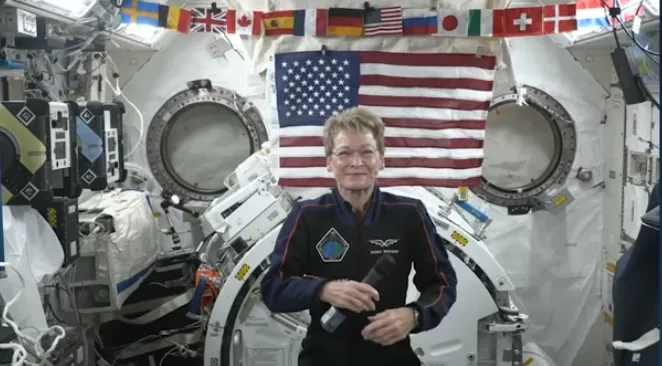

As a driving force in the space sector, Texas continues to shape the future of commercial space exploration. Axiom Space brought together leaders from the Texas state government, the Texas Space Commission, and the Texas Aerospace Research and Space Economy Consortium for a conversation with Ax-4 Commander Peggy Whitson while aboard the International Space Station. Their discussion highlighted the growing importance of commercial space, the strength of Texas leadership in the industry, and the critical role of workforce development in sustaining long-term innovation and economic growth in low-Earth orbit.
Whitson shared insights from her transition into commercial spaceflight. Her current role allows her to work closely with international partners and mentor new astronauts, reflecting the dynamic evolution of human spaceflight beyond traditional government-led missions. Ax-4 is a milestone, bringing together astronauts from India, Poland, and Hungary for their first mission aboard the International Space Station. Missions like Ax-4 not only strengthen global partnerships but also reinforce the United States’ leadership in commercial space by demonstrating the capabilities of private astronaut missions.
Texas plays a meaningful role in the commercialization of space. Through initiatives like the Texas Space Commission, the state is enabling innovation, supporting public-private partnerships, and investing in the infrastructure needed to sustain long-term growth. These efforts are essential for maintaining U.S. competitiveness in the global space economy.
Sustaining a continuous human presence in low-Earth orbit is vital for scientific discovery. Research conducted in microgravity has already led to breakthroughs in medicine and materials science, and continued access to this environment is key to future innovation. Looking ahead, the next two decades are expected to bring transformative changes, including the rise of commercial space stations like Axiom Station, expanded international collaboration, and greater public access to space.
With strong leadership, strategic investment, and a commitment to collaboration, Texas and the United States are well-positioned to lead the next era of space exploration — one defined by innovation, inclusivity, and global impact.